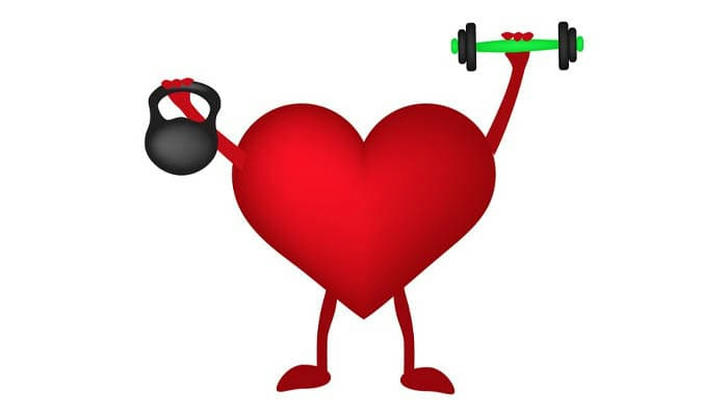Simple Ways to Keep Your Heart Healthy with Exercise

Taking care of your heart doesn’t require intense workouts or hours at the gym. In fact, just staying active in your daily routine can have a huge impact on your heart health. Whether you're just starting out or looking to improve your fitness, it’s never too late to get moving—and the best part is, you don’t need to be an athlete to see results!
Why Exercise Matters for Your Heart

Your heart is a muscle, and just like any other muscle in your body, it gets stronger with regular exercise. Staying active can significantly reduce your risk of heart disease. In fact, people who don’t exercise are nearly twice as likely to develop heart problems as those who do.
Regular exercise offers several heart-boosting benefits, including:

Burning Calories: Exercise helps your body burn energy, which can lead to weight loss or maintenance. By managing your weight, you reduce the strain on your heart and lower your risk of heart disease.
Lowering Blood Pressure: Physical activity strengthens the heart, allowing it to pump blood more efficiently. This can help lower high blood pressure, which is a major risk factor for heart attacks and strokes.
Reducing "Bad" LDL Cholesterol: Exercise helps lower levels of LDL cholesterol, often referred to as "bad" cholesterol. High levels of LDL can build up in your arteries, increasing the risk of heart disease. Regular exercise helps keep this type of cholesterol in check.
Increasing "Good" HDL Cholesterol: Exercise also helps raise levels of HDL, or "good" cholesterol. HDL helps remove excess cholesterol from the bloodstream, reducing the risk of plaque buildup in your arteries and promoting overall heart health.
Getting Started: How to Begin Your Fitness Journey

The key to starting is to find an activity you enjoy. Consider what you like to do and what feels right for your current fitness level. Do you prefer working out on your own, in a class, or with a trainer? Would you rather exercise at home or go to a gym?
If you want to push yourself further, set a goal and gradually work your way up. For example, if running is your goal, start by walking, then add short bursts of jogging into your walk. Slowly, you can begin running for longer intervals until you reach your target.
Before beginning any new exercise routine, it's important to talk to your doctor. They'll help you assess your fitness level and suggest any limitations, especially if you have existing health concerns.
Different Types of Exercise for Heart Health

Your exercise routine should include a mix of different activities to keep things balanced and effective:
Aerobic exercise (cardio) – This is anything that gets your heart rate up and makes you breathe harder. Activities like running, biking, or even brisk walking are great examples. If you have joint concerns, try low-impact activities like swimming. Remember, you should still be able to talk while exercising; if you’re too winded to speak, you're pushing yourself too hard.
Stretching – Flexibility is important, and stretching a couple of times a week will help you stay limber. Stretching after a warm-up or workout is ideal, and be sure to do it gently—stretching should never cause pain.
Strength training – Building muscle is key to overall fitness and heart health. You can use weights, resistance bands, or even your own body weight (like in yoga). Aim to strength train 2-3 times a week, making sure to give your muscles time to recover between sessions.
How Much Exercise Do You Need?

To see the heart-healthy benefits, aim for at least 150 minutes of moderate-intensity activity per week. This breaks down to about 30 minutes a day, five days a week. If you’re just getting started, don’t worry—you can build up to this goal gradually.
As your fitness improves, feel free to increase the intensity or duration of your workouts, but do it at a pace that’s comfortable for your body. Always warm up before starting and cool down afterward to reduce the risk of injury.
Variety is important too—mix up your activities to keep things fun and interesting. You don’t have to do the same workout every time!
Exercise Safety Tips

Most people can exercise safely as long as their doctor gives the green light and they listen to their bodies. If you experience chest pain, shortness of breath, dizziness, or an irregular heartbeat while exercising, stop immediately and seek medical attention.
It's normal to feel some muscle soreness, especially when you’re new to exercise. This will fade as your body adjusts. Soon, you may find that exercise leaves you feeling more energized and stronger, and that’s a great sign that you’re on the right track.
Getting your heart in shape doesn’t have to be complicated. Just get moving, have fun, and watch your heart health improve over time!

